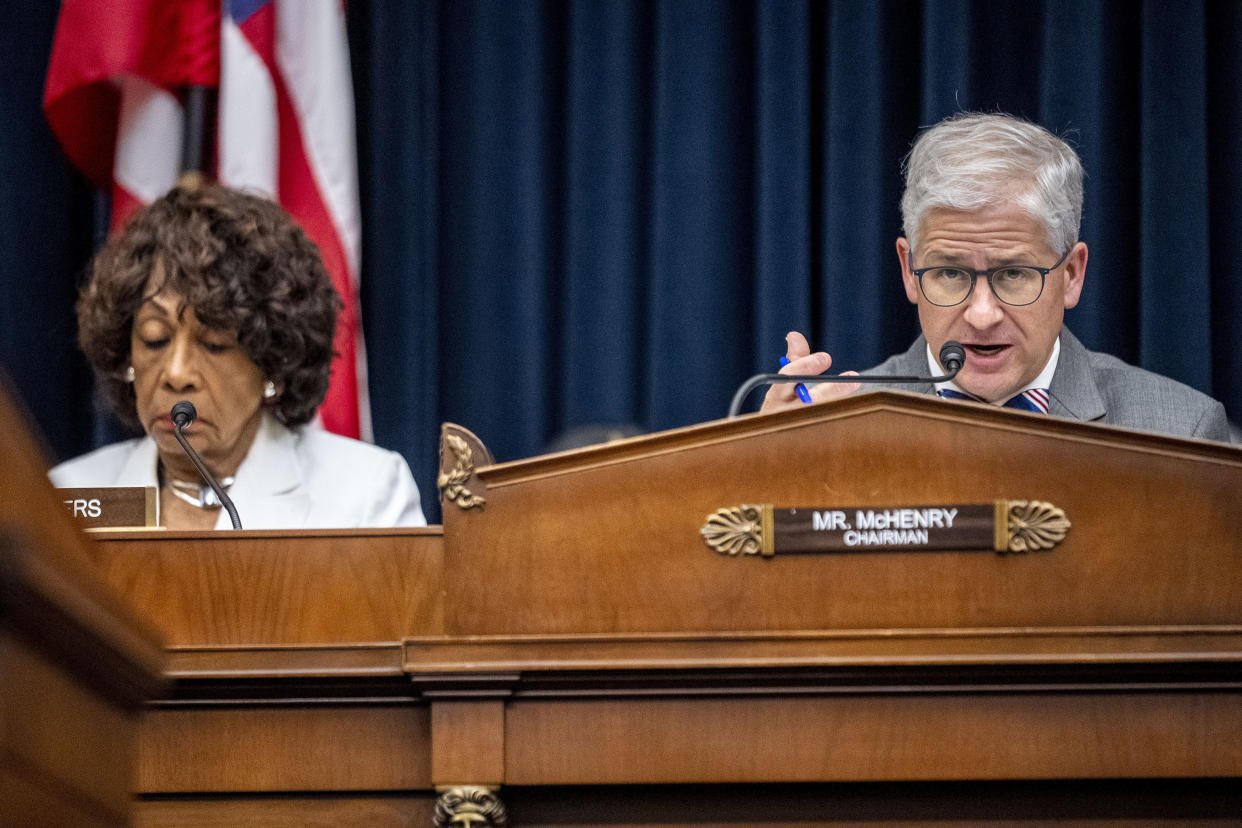Maxine Waters: 'We don't know the dangers of AI'
Representative Maxine Waters (D, CA), the top Democrat on the House Financial Services Committee, says artificial intelligence is getting ahead of Congress’ ability to regulate it and that lawmakers need to move quickly.
"We don't know all of the dangers of AI," Waters said in an exclusive interview with Yahoo Finance Thursday. "We don't know the creations that they could do, and I think that we have to be cautious. We have to be very careful. We have to have regulations. We should get on it right away."
Waters is calling on House Financial Services Committee Chair Patrick McHenry (R, NC) to hold a hearing as soon as possible on Microsoft’s ChatGPT and other advancements in artificial intelligence as well as any risks to the financial and housing sectors.
"[We need] to make sure that consumers are not taken advantage of, that we get the truth and that the biases, already in algorithms, would not be what would cause problems in AI… we really need to get started on making sure that we have regulations that will protect everyone," said Waters.

Waters told Yahoo she has not heard back from McHenry. Laura Peavey, a spokeswoman for the House Financial Services Committee Republicans, said as Waters "is aware, we have discussed holding a committee hearing on AI in the fall."
Waters says she’s leaning toward the idea of creating a separate agency.
"I do believe that this technology is so new and so different, and we've got to teach people about the chat bots and the black box and all of that," said Waters. "We really do need a separate agency in order to … have the regulations that are necessary for this new technology."
Waters cited the stance of the Consumer Financial Protection Bureau, which has said AI technologies must still comply with existing consumer protection laws.
Earlier this year, the agency issued a policy statement explaining what constitutes abusive use of AI technology after taking multiple actions in 2022. One stipulated that digital marketers using algorithms will be held to the Consumer Financial Protection Act and violators will be held accountable.
Waters is particularly keen on making sure AI doesn’t adopt biases that hurt certain types of consumers. A Congressional AI Task Force has raised ethical and legal concerns related to algorithmic bias and discrimination, particularly if automated programs do not perform as intended or have adverse effects on members of protected classes.
The task force found these technologies may embed historic inequities in the financial services and housing markets through the use of data that reflect underlying bias or discrimination.
'Very close' on stablecoin bill
Waters also said during the interview on Thursday that Democrats and Republicans on the House Financial Services Committee are "very close" to an agreement on bipartisan legislation to govern stablecoins, but “not there yet” when it comes to regulating crypto overall.
"I do think that we can get a bipartisan piece of legislation that will ensure [with] stablecoins that the companies have the assets that they claim to have in order to protect consumers… stablecoins [are] on the road to some possibilities of getting the kind of regulations that's needed," Waters said.
Waters had been working closely with McHenry on a bill to regulate stablecoins but it fell apart once Republicans took over the House and the two sides started from scratch. Republicans on the committee have incorporated some of Democrats concerns into a new draft of the bill, though there are still some outstanding concerns.
But when it comes to a larger discussion draft for an overall framework for regulating crypto, Waters says there’s "still a lot of work to be done."
"I know that Mr. McHenry is trying to come up with some other efforts to deal with crypto, but we're certainly not there yet," said Waters.
The draft bill aims to create clarity around gaps between the rules of the Commodity Futures Trading Commission (CFTC) and the Securities and Exchange Commission (SEC). It also tries to direct what firms need to do need to register with the SEC and requires the SEC to write new rules that are customized to govern crypto.
The bill also tries to clarify a long outstanding issue for the crypto community — what criteria would cause a crypto token to be classified as a commodity or as a security. It provides the CFTC with jurisdiction over digital commodities and clarifies the SEC’s jurisdiction over digital assets offered as part of an investment contract.
Click here for the latest stock market news and in-depth analysis, including events that move stocks
Read the latest financial and business news from Yahoo Finance
